Intensive Care Unit
-

Vanderbilt nursing professor wins NIH funding to study sleep’s role in cognitive impairment
New faculty Makayla Cordoza will work with VUMC patients to assess their quality of sleep before and during hospitalization, to better understand how to prevent ICU delirium. Read MoreOct 16, 2023
-

COVID-19 met with intensive teamwork
Team members serving COVID-19 inpatients were more densely connected, interacting far more than their medical ICU counterparts. Read MoreApr 1, 2021
-

Study: personalized decision support affects intensive care
For patients in pediatric intensive care who are at high risk for acute kidney injury (AKI), giving clinicians automated decision support during the electronic order entry process increased the rate of blood testing for AKI by 9%. Read MoreOct 3, 2019
-
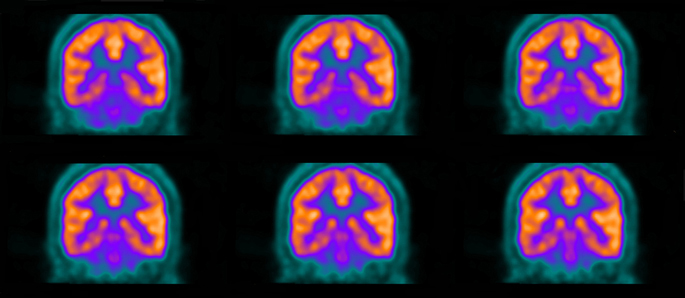
Alzheimer’s proteins in ICU survivors
The cognitive impairment that affects patients who survive a stay in the ICU does not appear to have a similar mechanism to Alzheimer’s disease, Vanderbilt researchers have discovered. Read MoreMar 27, 2018
-

Delirium, benzos and the pediatric ICU
With other risk factors held equal, children who received a benzodiazepine sedative drug were nearly three times more likely to experience delirium – confused thought – the following day. Read MoreOct 2, 2017
-

Medication safety in the ICU
Facilitated reporting of medication-related events in the intensive care unit can provide opportunities for optimizing quality of care and patient safety. Read MoreSep 19, 2017
-
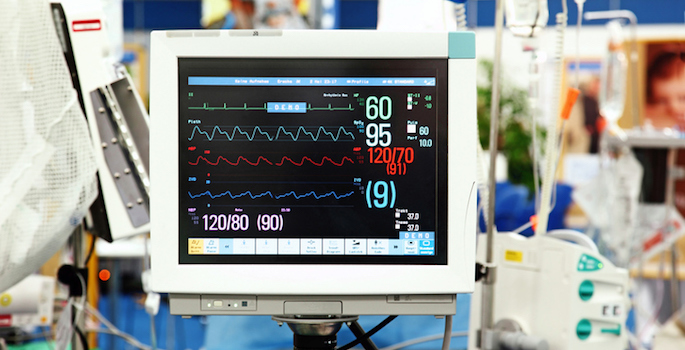
Device helps ICU patients by filtering out noise from medical alarms
A team of investigators at Vanderbilt University Medical Center (VUMC) wants to improve patient outcomes in Intensive Care Unit (ICU) settings by silencing audible medical alarms in hospital rooms. Read MoreJun 21, 2017
-

Program aims to help patients thrive following ICU stay
The phrase “working twice as hard for half as much” is one that sadly rings true for many patients who have had significant stays in an intensive care unit (ICU). Surviving a lengthy critical care experience can result in depression, weakness, fatigue and other cognitive and physical deficiencies. Read MoreFeb 9, 2017
-
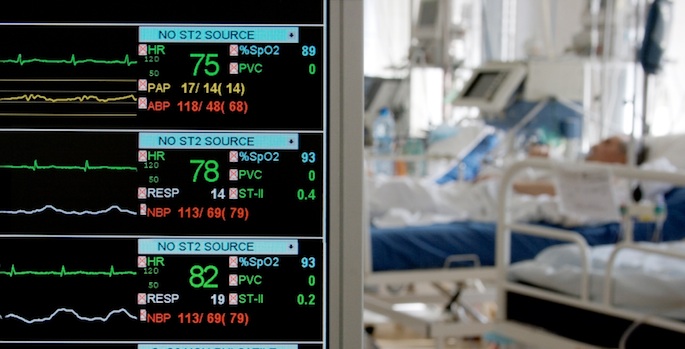
Study shows veteran, civilian patients at risk of ICU-related PTSD
In a first-of-its-kind study of veterans and civilians, researchers from Vanderbilt University Medical Center found that one in 10 patients is at risk of having a new post-traumatic stress disorder (PTSD) following their time in the intensive care unit (ICU). Read MoreJan 12, 2016
-
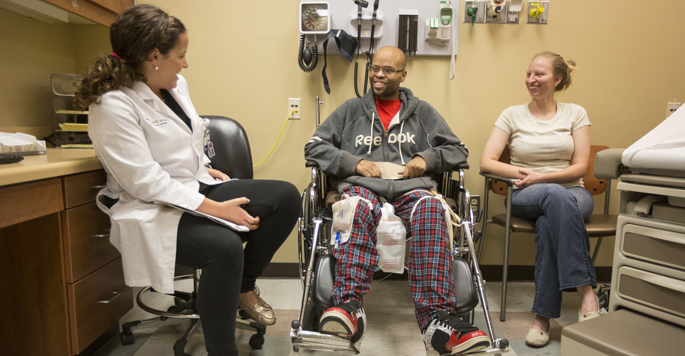
ICU Recovery Center helps ease burden of critical illness
Quinton Smith doesn’t remember much of what happened one Sunday evening last March. He was disoriented, unable to stand and could not even recognize his girlfriend’s face after she returned home from work. Read MoreOct 29, 2015
-
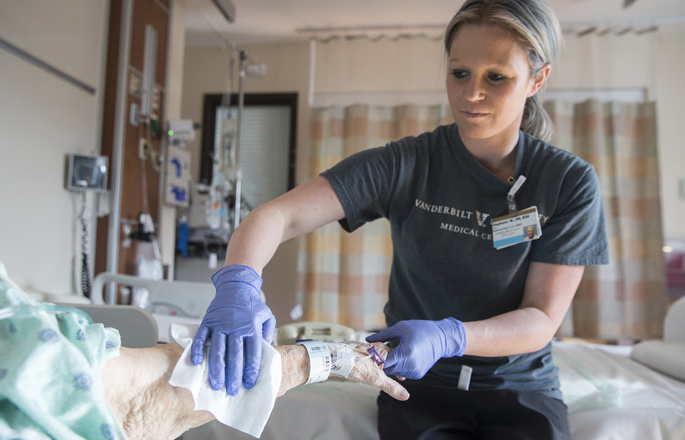
Findings do not support chlorhexidine bathing in ICUs
Vanderbilt University Medical Center researchers have found that bathing critically ill patients with disposable chlorhexidine cloths did not decrease the incidence of health care-associated infections when compared to less expensive nonantimicrobial cloths, according to a study appearing online in JAMA this week. Read MoreJan 21, 2015
-

Delirium increases long-term disability
Patients who suffer a longer duration of delirium in the intensive care unit are more likely to experience long-term disability after discharge. Read MoreMar 17, 2014
-

VUCast: Startling brain-related study on critically ill patients
In the latest VUCast: ICU patients are leaving hospitals with a dementia-like disease; What’s the fate of the Republican Party?; Hear from Pulitzer Prize-winning author and Distinguished Visiting Professor Jon Meacham; and It's time to celebrate -- the Rate My Professor 2013 rankings are in. All this and more in Vanderbilt’s online newscast. Watch now. Read MoreOct 16, 2013
-
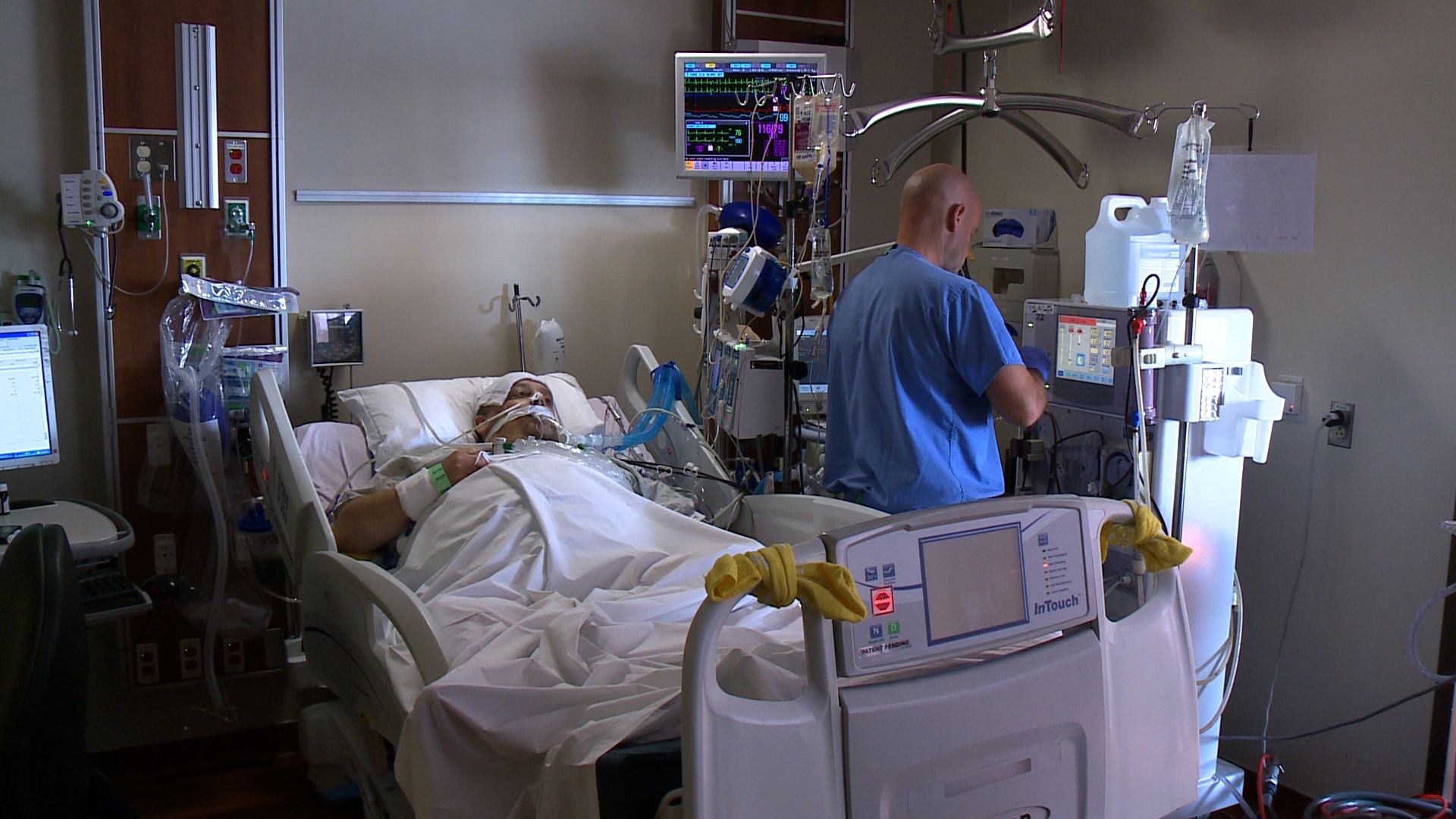
Long-term brain impairment too common after critical illness
A recent Vanderbilt study shows a significant number of patients are entering I.C.U.’s throughout the world with no evidence of cognitive — brain related issues, but are leaving with symptoms associated with mild Alzheimer’s or Traumatic Brain Injury. Barb Cramer has more. Read MoreOct 8, 2013
-

Pathways to delirium in the ICU
Study suggests that the “kynurenine” biochemical pathway could be a target for reducing delirium and coma in critically ill patients. Read MoreApr 17, 2012